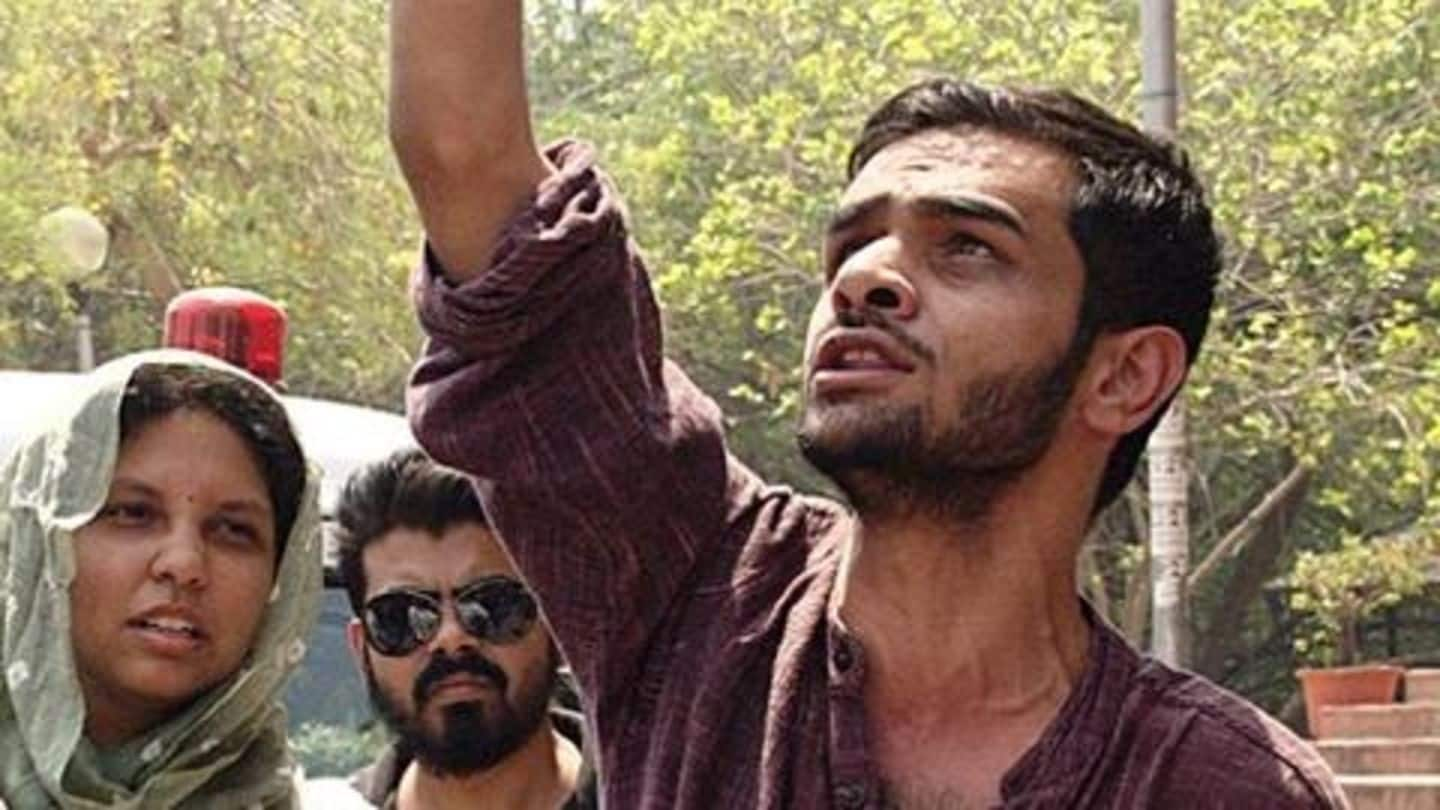
Delhi riots: Why was UAPA used against Umar Khalid?
What's the story
In connection to riots that broke out in the National Capital in February, the Delhi Police invoked Unlawful Activities (Prevention) Act (UAPA) against at least four persons namely Meeran Haider (Chhatra Rashtriya Janata Dal (RJD) member), Safoora Zargar (media coordinator of Jamia Coordination Committee), Umar Khalid (former JNU student), and Bhajanpura resident Danish.
Let's tell you why the stringent act was used against them.
Context
CAA, agitation, violence, and riots: What happened in Delhi?
Since December, Delhi was brimming with tensions after the contentious Citizenship Amendment Act (CAA) was passed. A sit-in protest against it started in Shaheen Bagh and along the same lines, a similar agitation started near Jaffrabad metro station.
The latter protest was met with resistance which took a violent turn and snowballed into Hindu-Muslim riots, the worst Delhi saw in decades.
Over 50 died.
Probe
Delhi Police's Special Cell filed separate FIR, invoked UAPA
In the investigation, relevant sections of IPC were invoked but a Special Cell of the Delhi Police is also probing a "larger conspiracy" behind the riots.
The Special Cell filed a separate FIR under UAPA, which allows a person to be jailed for up to seven years.
Haider and Zargar were the first ones to be arrested by Special Cell, reports TOI.
Details
Zargar played key role in organizing protests at Jaffrabad station
Later on, police arrested activists Khalid Saifi and Gulisfha. The number of accused stands at nine, of whom six have been booked under UAPA.
Zargar allegedly gave the call for an anti-CAA protest at Jaffrabad metro station. This protest prompted the pro-CAA rally by BJP's Kapil Mishra, which laid roots for the violence, reports IE.
She was arrested on April 13.
Charges
Like Zargar, Haider is also in police custody
Before UAPA, Haider was slapped with IPC Sections 147, 148, 149 and 120B.
Sections 124A (sedition), 302 (murder), 307 (attempt to murder), and 153A (promoting enmity between different groups on grounds of religion, etc. were also invoked, his lawyer Akram Khan said.
Haider is in judicial custody and Khan filed a bail plea but after learning of UAPA charges, he dropped the idea.
Details
They were booked under UAPA for alleged links with PFI
Reportedly, UAPA (and in particular sections 13, 15, 16, 17 and 18) were used owing to Haider and Zargar's alleged links with Popular Front of India (PFI), an Islamist outfit.
The initial FIR, filed on March 6, was based on inputs that an informer passed on to sub-inspector Arvind Kumar of the Crime Branch's narcotics unit.
The informer claimed the violence was "premeditated conspiracy".
Allegations
Khalid asked people to come on streets during Trump's visit
According to FIR, Umar Khalid gave provocative speeches at two different places asking people to come on streets around the same time United States President Donald Trump visited India.
He wanted "to spread propaganda at the international level about how minorities in India are being persecuted" the FIR went on.
Khalid already faces sedition charges in connection to the Afzal Guru commemoration event of 2016.
Quote
Danish was given responsibility to gather crowd
"The co-accused, Danish, was given responsibility to gather people from different places to take part in the violence... Women and children were made to block the roads under the Jaffrabad Metro Station on February 23 to create tension amidst the neighborhood people," FIR said.
Statement
Film personalities demanded release of activists, Delhi Police countered
On Sunday, more than 20 Bollywood celebrities, like Anurag Kashyap, Vishal Bhardwaj, Mahesh Bhatt, Ratna Pathak Shah, released a statement demanding the release of students and activists. They claimed arrests happened as the activists protested against CAA.
Countering this, Delhi Police said the probe into Jamia violence and riots was done impartially and arrests were made after assessing forensic evidence.